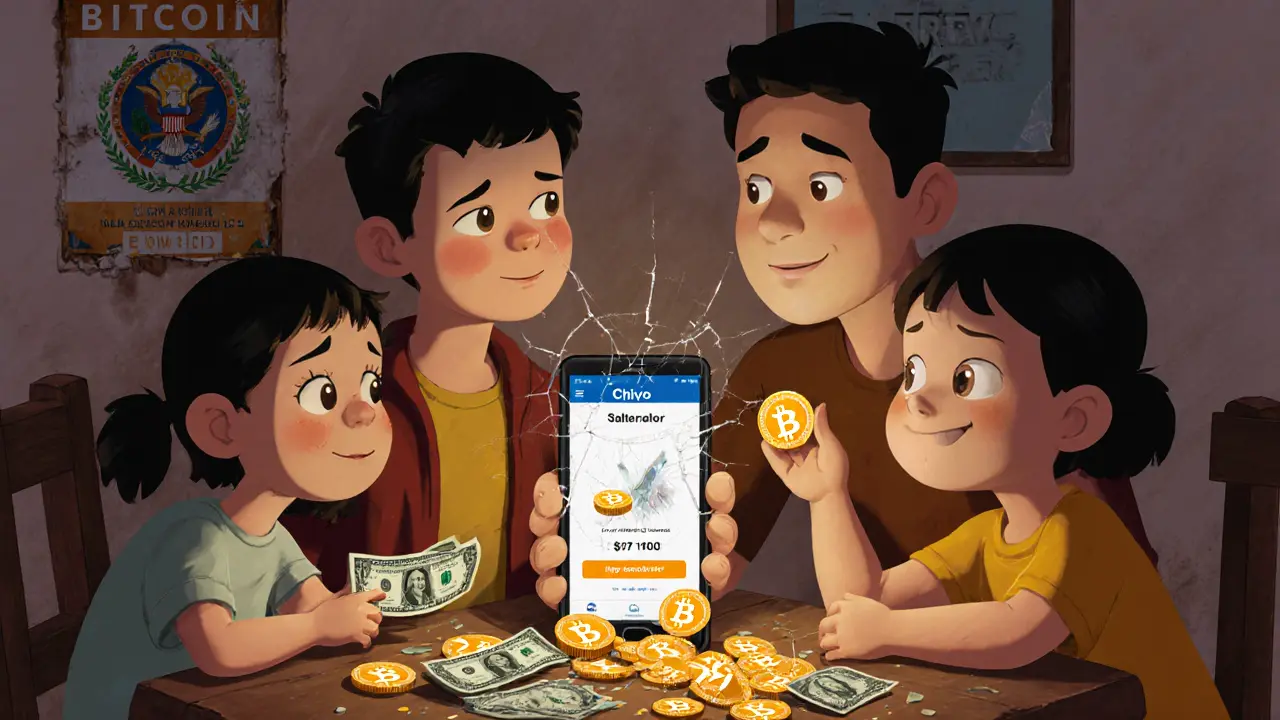Chivo Wallet Problems: Common Issues and How to Fix Them
When Chivo Wallet, the official Bitcoin wallet launched by the El Salvador government to push crypto adoption. Also known as El Salvador Bitcoin Wallet, it was meant to make digital money easy for everyone. But for many users, it’s become a source of frustration, not freedom. The app freezes, transactions vanish, and some people can’t even log back in after updates. It’s not just bad luck—it’s a pattern. Thousands report the same issues: failed transfers, delayed confirmations, and accounts locked out without warning. If you’re using Chivo Wallet, you’re not alone.
One major problem ties directly to Bitcoin, the decentralized digital currency that powers the Chivo Wallet and El Salvador’s national crypto experiment. Chivo Wallet doesn’t give users full control of their private keys. That means your Bitcoin isn’t truly yours—it’s held by a centralized system that can freeze, delay, or even reverse transactions. This goes against everything Bitcoin stands for. And when the government pushes mandatory use in shops or public services, users get stuck with a wallet that can’t be trusted. Add in poor internet access in rural areas, and you’ve got a recipe for failed payments and lost trust.
Security is another big hole. Chivo Wallet requires a phone number and government ID to sign up, making it a target for SIM swap attacks and identity theft. There’s no two-factor authentication beyond SMS, and customer support is nearly impossible to reach. Users who lost funds after a system glitch or phishing scam have reported being ignored for months. Meanwhile, digital identity, the system linking citizens’ government IDs to their Chivo Wallet accounts. becomes a liability—not a feature—when the platform itself is unreliable. Even basic functions like sending Bitcoin to another wallet often fail, showing up as "pending" for days or disappearing entirely.
It’s not just about tech glitches. The Chivo Wallet’s design assumes everyone has stable internet, understands crypto, and trusts the state to manage their money. But in practice, it’s forced on people who just want to pay for groceries, not become crypto experts. The result? Many users are abandoning it for other wallets like BlueWallet or Strike, even if they’re not officially endorsed. The wallet was supposed to be a bridge to the future. Instead, it’s become a reminder of how top-down crypto mandates can backfire when the underlying system isn’t built for real people.
Below, you’ll find real user experiences, fixes that actually work, and warnings about scams pretending to "help" with Chivo Wallet issues. If you’re stuck, confused, or worried about your funds, these posts will show you what’s really happening—and how to protect yourself.
Chivo Wallet and Bitcoin in El Salvador: What Went Wrong and What’s Left
El Salvador’s Chivo wallet was meant to revolutionize finance with Bitcoin. But after a volatile rollout, technical failures, and IMF pressure, Bitcoin lost its legal tender status in 2025. Here’s what actually happened - and what’s left.
